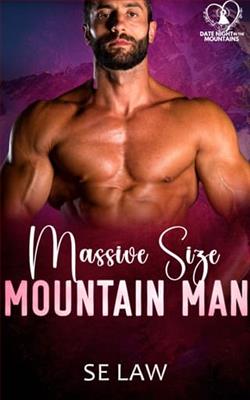Page 10 of Tangled in a Highland Conspiracy
“Sit,” he ordered, as if Ramsay were a dog.
For a moment, Ramsay hesitated. He took offence at his brother’s self-important tone, which he found demeaning as if he were a member of his staff and not his family, but then he realised that he was in effect a member of both. He was stuck somewhere in the middle of two different layers of society, and not a full member of either, so he decided to keep the peace and obey John. He sat down.
John poured them a glass of wine and sighed. “I am sorry for snapping at you,” he said regretfully. “But sometimes the strain of knowing you are going to inherit all this…” he waved his arm around the room, “is a bit too much to bear. Father presses me to learn about the husbandry, the tenants, the finances, as well as the animals. As well as all that there is the problem of keeping the peace with the Ormonds and finding a wife. I am sorry, Ramsay. I should not take it out on you.” He extended his hand to his brother in a gesture of peace and Ramsay shook it, smiling.
“There is no need to apologise, John,” he said warmly. “We all lose our tempers sometimes. Tell me what you wanted to say.”
John sighed, looked into the distance for a while, then returned his gaze to Ramsay. “I was not born until Father was in his forty-second year,” he said heavily. “And he was forty-four when you came along. He is now in his late sixties and looks even older.
He thinks that everything is going to run smoothly from now on, since Ailsa and I are engaged to be married, but I think there are still plenty of obstacles to overcome. What if Ailsa does the same thing as her mother and father? That possibility still haunts me. And Father is an old man. Is he strong enough physically or mentally to retaliate if the McBains break their word?
I will not be happy until we’re standing at the altar.” Then he looked up at his brother. “Do you not think a woman writing to a man like that is a little forward?”
“I don’t understand,” Ramsay replied, frowning. “Have you changed your mind about going?” He hoped so.
“Absolutely not!” John shook his head vigorously. “It seems as if she is a very confident woman; very sure of herself, very straightforward. I think she feels as I do; that Father cannot be trusted to handle things on his own.”
“And you do not like that?” Ramsay asked. “Because if you have any doubts about her, now is the time to speak, before it is too late and you are already married.”
John looked down at his hands, which he was twisting together on the table. He looked as though he was thinking deeply. At last, he said, “It does not matter what I think of her, Ramsay. It is my duty to wed her, and wed her I will. But make no mistake; this marriage is a transaction, no more than a formality. I will make sure it is consummated, and I will give her a baby as soon as I can, but after that…” He shrugged. “After that, I will do as I please, but I will not be unreasonable. Ailsa can take lovers too, as long as she is discreet.”
Ramsay thought of the bachelor life they both enjoyed. It would not be true to say that they had bedded every young woman they had ever met, but like most young men of their age, they had enjoyed the favours of quite a few of them.
However, Ramsay was quite shocked to hear that John had not even the slightest intention of being faithful to his wife. His brother had acquired a reputation for his promiscuity, but Ramsay had imagined that it would all stop as soon as he had put a ring on Ailsa’s finger. Obviously, he had been very naïve in his expectations.
John looked at Ramsay’s pained expression and felt quite aggrieved; he hoped he was not going to get a lecture on morality like the ones he had had to endure from his late mother, who had died when he was ten years old. He had often thought that Chrissy Ormond should have entered the church if women had been allowed to since she knew her Bible from front to back and could quote it verbatim.
He did not want to hear any more preaching. “Do you have a problem with my saying that, Ramsay?” he asked sharply.
Ramsay did have a problem with it and said so in no uncertain terms. “Aye, I do,” he replied in the same angry tone. “We were always taught that marriage was about faithfulness and love, but you are already planning to bed other women for your own pleasure before you have even said your vows!”
John stood up and slammed the flat of his right hand onto the desk. “When you are married,” his voice was throbbing with rage, “then I expect you will stick to those rules you have set for yourself, but this ismylife andmymarriage, so please keep your opinion to yourself.”
“I would have, but you asked me for it,” Ramsay replied. “You are right, though. It is none of my business. You must live your life as you please, John.”
John was a little mollified. He and Ramsay had argued many times, but as brothers do, they always made up. He had never said so to him, but even though Ramsay was his younger brother, John looked up to him. He had had to battle the stigma of illegitimacy all through his life but he had never let it beat him. His respect for his brother was boundless.
Ramsay downed the rest of his wine and said: “I’ll think I might go on duty now.”
“But I gave you the afternoon off!” John was aggrieved. “I thought we were going out for a ride.”
“I thought you had changed your mind,” Ramsay said. “You were so angry.”
“You annoy me sometimes,” John replied, but he was smiling. “And I annoy you. But is that not what brothers do? Come here.” He pulled Ramsay in for a big hug, and they held each other tightly for a moment, both laughing.
When they drew apart they headed for the stable to saddle their stallions and then headed out into the bright daylight. The sky was white and hazy, but there was no rain in sight, and they were able to see across the hills for miles.
Sometimes, looking at this view, Ramsay wished he had wings and could fly away, leave his life and its troubles behind him, and start anew somewhere else. He would go somewhere where no one knew that he was merely the by-blow of a maidservant, and had been carelessly sired and cast aside by his father the Laird. He had always wanted to do something noble for the clan, like participate in crafting a peace treaty. However, he supposed that he would forever be remembered—if he was remembered at all—for being the man stuck to John’s side like a shadow since a shadow was all he would ever be.
Had they but known it, Ailsa and her sister were sitting only a little way away, but they did not, so the two brothers rode their horses along the shoreline, saying nothing and thinking their own thoughts.
Ramsay was thinking about the first time he had seen Ailsa. He had attended a ceilidh at Mulrigg Castle which had been held to celebrate the Laird’s birthday, and the Ormonds had been asked to come as a gesture of goodwill.
* * *
Laird Ormond had not been willing to take Ramsay with them at first. “He is a bastard,” he grunted when the invitation came. “He will disgrace us.”
“Show me that.” John ripped the paper out of his father’s hand and read it, then looked up into the Laird’s malevolent eyes. “It says that you are to bring your whole family,” he pointed out, waving the piece of paper in the air. “Ramsay is part of our family. He is your son and my half-brother. Father, if Ramsay is not welcome then neither am I. If Ramsay is a bastard then that isyourfault! He is a good man and he cannot help what he is. As I said, both of us go or neither of us does. What is it to be?”















